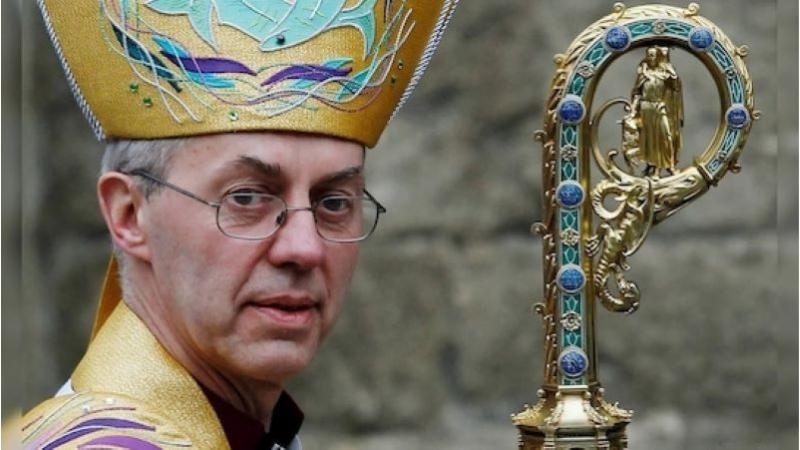Church of England Faces Crisis as Synod Fails to Approve Independent Abuse Oversight Amid Scandals

- devara
- 26 Feb 2025 03:20 AM
- #Church of England #clergy abuse #safeguarding crisis #UK religious institutions #IICSA report
The Church of England is once again embroiled in controversy following its General Synod meeting, which opted for a compromise in handling safeguarding and abuse complaints instead of establishing an independent oversight body. The decision has reignited concerns about institutional accountability, as survivors and advocacy groups continue to demand real reform.This move comes amid a growing crisis within the Church, which has faced multiple abuse scandals that have severely damaged its moral authority and public trust. Despite its historical role as Britain’s religious and moral compass, the Church's failure to protect vulnerable individuals has led to accusations of institutional cover-ups.
Years of Silence: Abuse Scandals and Institutional Failures
The Church of England’s reputation has been severely undermined by a series of high-profile abuse cases, the most recent involving former Archbishop of Canterbury Justin Welby.Welby resigned in November 2023 after an independent inquiry exposed his failure to act on allegations of child sexual abuse within the Church. The report, centered on John Smyth, a barrister and evangelical leader, revealed decades of unchecked abuse of over 130 boys in the UK and Africa.
According to the Independent Inquiry into Child Sexual Abuse (IICSA), Welby was aware of the allegations in 2013 but failed to formally report the abuse. The inquiry further exposed systemic failures dating back to 1982, when Church leaders ignored early warnings about Smyth’s abuse.The scandal even led to The Children’s Society, a major UK charity, rejecting a donation from Welby, citing the Church’s failure to align with ethical safeguarding values.Welby’s resignation has left the Church of England in turmoil, with leadership responsibilities temporarily divided among senior figures while a new Archbishop is selected. The appointment process is expected to take several months, with the next Archbishop inheriting an institution grappling with declining membership, deep credibility issues, and growing internal divisions over modern social issues.
Widespread Abuse and Systemic Cover-Ups
The Church of England has long been criticized for failing to protect victims, as reports and investigations have revealed a disturbing pattern of abuse cover-ups.
One of the most infamous cases involved Bishop Peter Ball, who was sentenced to prison for sexually abusing teenage boys and young men over several decades.The shocking revelations about Ball’s case included support from powerful establishment figures, including a member of the Royal Family, who allegedly helped him evade prosecution in the 1990s when abuse allegations first surfaced.Further investigations by IICSA in 2020 revealed the Church’s long history of shielding abusive clergy instead of protecting victims. Some key findings included:
- Failure to Protect Victims – The Church prioritized its reputation over the safety of children, allowing abusers to remain in positions of power.
- Institutional Cover-Ups – Senior clergy, including bishops, ignored or downplayed allegations, enabling predators to continue their abuse.
- Inadequate Safeguarding Measures – The Church’s internal systems were deeply flawed, with inconsistent reporting procedures and no effective independent oversight.
- Victim-Blaming Culture – Survivors were often dismissed, disbelieved, or even met with hostility, rather than receiving justice or pastoral care.
Despite public outrage, many argue that the Church’s safeguarding policies remain insufficient, with no real mechanism for independent accountability. The recent Synod decision to retain partial internal control over abuse investigations has fueled further distrust.
The Church of England’s Role in British Society
Despite growing secularism in the UK, the Church of England remains deeply embedded in British governance and law.
- State Religion and Royal Influence – The monarch (currently King Charles III) serves as the Supreme Governor of the Church of England, reinforcing its constitutional role.
- Legislative Power – The House of Lords includes 26 bishops (Lords Spiritual), giving the Church a direct influence on UK lawmaking.
- Education and Social Services – The Church runs one-third of state-funded schools in England and remains a key player in social welfare programs, including support for homeless individuals and asylum seekers.
With such significant institutional power, critics argue that the Church must be held to a higher standard regarding transparency and accountability. Yet, the recent decision to stop short of full independent oversight suggests that the Church is still reluctant to fully confront its failures.
A Global Problem: Religious Institutions and Abuse Cover-Ups
The Church of England is not alone in facing scandals related to sexual abuse and institutional protection of offenders. Across different faiths, patterns of cover-ups and inaction have been documented:
- Roman Catholic Church – Widespread abuse allegations and Vatican cover-ups have been exposed in multiple countries, spanning decades.
- Evangelical and Protestant Churches – Megachurches, particularly in the US, have faced serious abuse scandals, often discouraging victims from reporting crimes.
- Ultra-Orthodox Jewish Communities – Some communities have been accused of silencing victims and preventing them from seeking justice through secular legal systems.
- Islamic Institutions – Allegations of abuse in religious schools and seminaries often go underreported due to cultural stigma.
Across all these cases, the common theme is institutional self-preservation at the expense of victims' safety and justice.
The Future of the Church of England: Reform or Further Decline?
The Church’s well-wishers and critics alike agree that unless it embraces full transparency and hands over safeguarding to an independent body, its moral credibility will continue to erode.While secular activists push for the disestablishment of the Church, there is little public demand for immediate change. However, the Church’s future as a respected institution depends on whether it chooses accountability over self-preservation.
As Britain moves toward a more secular future, the Church of England faces an existential crossroads:
- Will it implement genuine, survivor-focused reforms and restore trust?
- Or will it continue to protect its institution at the cost of its reputation?
Failure to act decisively will not only deepen skepticism towards the Church of England but may also accelerate the decline of religious influence in the UK.












































